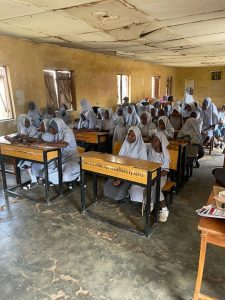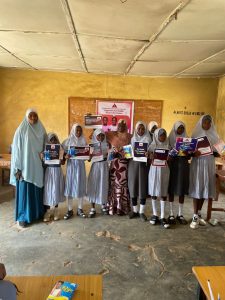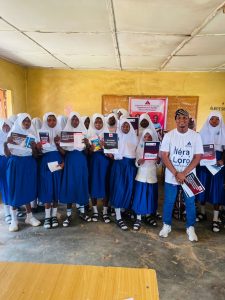October 16th, 2025
As part of activities marking the 2025 International Day of the Girl Child, MABIFUS Medical Diagnostics organized a health awareness outreach at Baboko Community School, Ilorin, focusing on personal hygiene and menstrual health education for young girls.
The initiative sought to equip students with vital knowledge about body care, self-confidence, and healthy decision-making. The event drew wide participation from teachers, parents, and community members, reflecting MABIFUS’s deep commitment to promoting preventive healthcare and improving health literacy among adolescents in Kwara State.

This is contained in a statement made available to our reporter where the management of MABIFUS described the outreach as part of its continuous effort to strengthen community-based health education.
During the sensitization session, health experts from MABIFUS led interactive discussions and demonstrations on menstrual hygiene and overall body care.
Mrs. Gidado Abdulfatah Shakira, a public health professional, emphasized that menstruation is a natural process that should be understood and managed with confidence, not shame. She encouraged the girls to maintain cleanliness and practice good hygiene throughout their menstrual cycles.

Also speaking, Mrs. Musa Bola Rasheedat, a registered nurse, explained how maintaining proper hygiene habits helps to boost self-esteem and prevent infections that could hinder academic performance. She urged the students to develop daily routines that promote good health and well-being.
In his address, Mr. Solihu Yusuf, a Good Health Advocate, cautioned against self-medication, misuse of herbal mixtures (Agbo), and drug abuse. He advised the students to seek professional medical care when necessary and share accurate health information with their peers and families.

Community leaders and parents in attendance commended the initiative, describing it as a timely and impactful intervention addressing one of the most pressing issues among adolescent girls — poor menstrual hygiene and lack of access to reliable health education.